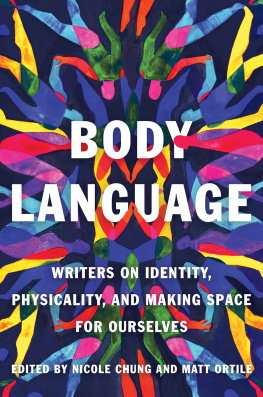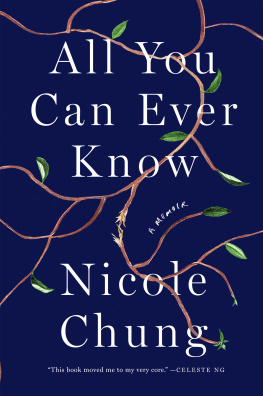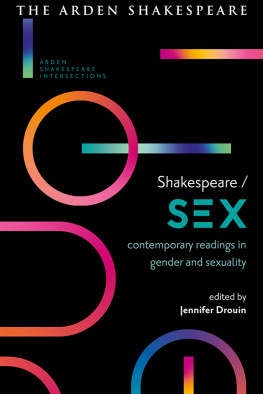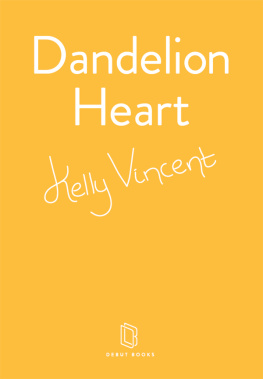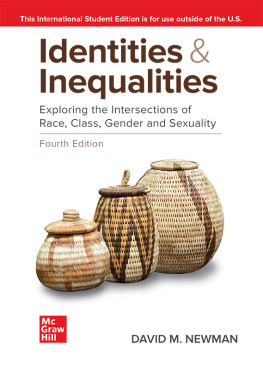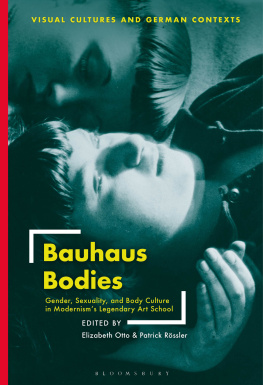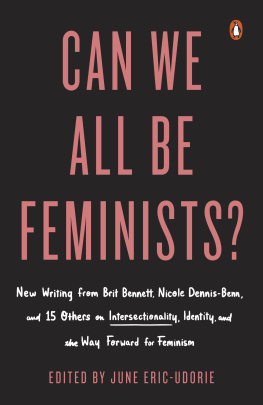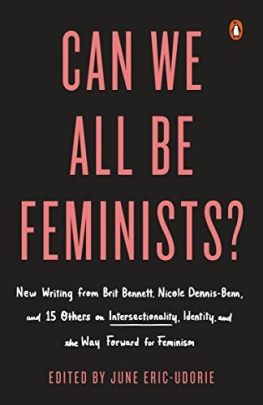Nicole Chung - Body Language: Writers on Identity, Physicality, and Making Space for Ourselves
Here you can read online Nicole Chung - Body Language: Writers on Identity, Physicality, and Making Space for Ourselves full text of the book (entire story) in english for free. Download pdf and epub, get meaning, cover and reviews about this ebook. year: 2022, publisher: Catapult, genre: Detective and thriller. Description of the work, (preface) as well as reviews are available. Best literature library LitArk.com created for fans of good reading and offers a wide selection of genres:
Romance novel
Science fiction
Adventure
Detective
Science
History
Home and family
Prose
Art
Politics
Computer
Non-fiction
Religion
Business
Children
Humor
Choose a favorite category and find really read worthwhile books. Enjoy immersion in the world of imagination, feel the emotions of the characters or learn something new for yourself, make an fascinating discovery.
- Book:Body Language: Writers on Identity, Physicality, and Making Space for Ourselves
- Author:
- Publisher:Catapult
- Genre:
- Year:2022
- Rating:3 / 5
- Favourites:Add to favourites
- Your mark:
Body Language: Writers on Identity, Physicality, and Making Space for Ourselves: summary, description and annotation
We offer to read an annotation, description, summary or preface (depends on what the author of the book "Body Language: Writers on Identity, Physicality, and Making Space for Ourselves" wrote himself). If you haven't found the necessary information about the book — write in the comments, we will try to find it.
Bodies are serious, irreverent, sexy, fragile, strong, political, and inseparable from our experiences and identities as human beings. Pushing the dialogue and confronting monolithic myths, this collection of essays tackles topics like weight, disability, desire, fertility, illness, and the embodied experience of race in deep, challenging ways.
Selected from the archives of Catapult magazine, the essays in Body Language affirm and challenge the personal and political conversations around human bodies from the perspectives of thirty writers diverse in race, age, gender, size, sexuality, health, ability, geography, and classa brilliant group probing and speaking their own truths about their bodies and identities, refusing to submit to others expectations about how their bodies should look, function, and behave.
Covering a wide range of experiencesfrom art modeling as a Black woman to nostalgia for a brutalizing high school sport, from the frightening upheaval of cancer diagnoses to the small beauties of funeral sexthis collection is intelligent, sensitive, and unflinchingly candid. Through the power of personal narratives, as told by writers at all stages of their careers, Body Language reflects the many ways in which we understand and inhabit our bodies.
Featuring essays by A.E. Osworth, Andrea Ruggirello, Aricka Foreman, Austin Gilkeson, Bassey Ikpi, Bryan Washington, Callum Angus, Destiny O. Birdsong, Eloghosa Osunde, Forsyth Harmon, Gabrielle Bellot, Haley Houseman, Hannah Walhout, Jenny Tinghui Zhang, Jess Zimmerman, Kaila Philo, Karissa Chen, Kayla Whaley, Maggie Tokuda-Hall, Marcos Gonsalez, Marisa Crane, Melissa Hung, Natalie Lima, Nina Riggs, Rachel Charlene Lewis, Ross Showalter, s.e. smith, Sarah McEachern, Taylor Harris, and Toni Jensen.
Nicole Chung: author's other books
Who wrote Body Language: Writers on Identity, Physicality, and Making Space for Ourselves? Find out the surname, the name of the author of the book and a list of all author's works by series.

